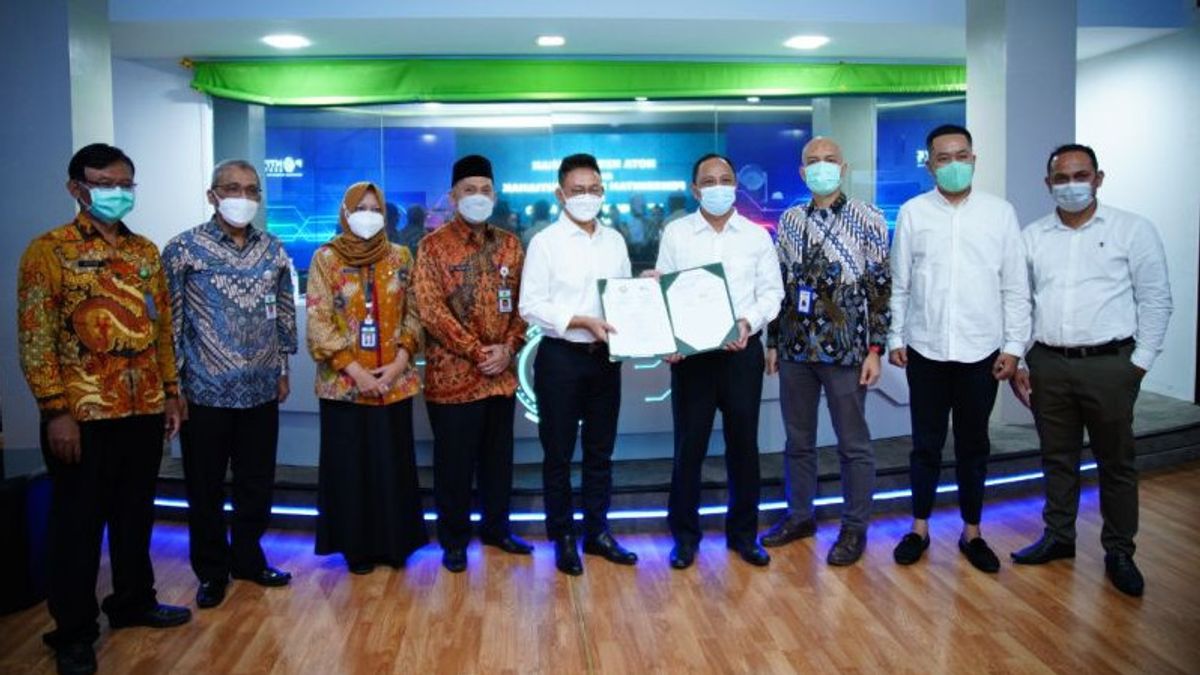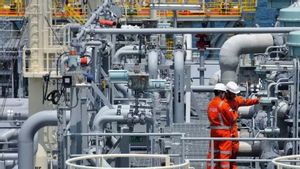PONTIANAK - The City Government (Pemkot) of Pontianak, West Kalimantan, is collaborating with PT Kusuma Jaya Agro in waste processing and co-firing as a new renewable energy fuel in the city. new renewable energy fuels. Furthermore, the Pontianak City Government (Pemkot) in this case provides land for the construction of a co-firing factory and other needs based on the agreement made," said Pontianak Mayor Edi Rusdi Kamtono in Pontianak, Friday, April 29. Cooperation This was stated in a memorandum of understanding or Memorandum of Understanding (MoU) signed by the Mayor of Pontianak Edi Rusdi Kamtono and Director of PT Kusuma Jaya Agro Raden Hidayatullah Kusuma. him, management needs to be regulated in waste management. Which waste is processed in the waste bank and which is in the Final Disposal Site (TPA). "We provide transportation facilities for the waste that will be managed by the co-firing plant," said Edi, quoted by Antara. the problem of waste that continues to boom in the city of Pontianak. Waste production in this city is almost 400 tons per day. The amount can exceed when entering the fruit season such as durian, rambutan, and other fruits. The existing waste bank also cannot process all the waste produced.
"So far, the existing waste is disposed of in the TPA, for example, waste from traditional markets. Therefore, this collaboration will at least help overcome the waste problem so far," he said. Meanwhile, Director of PT Kusuma Jaya Agro Raden Hidayatullah Kusuma said This collaboration is expected to be able to solve the waste problem in Pontianak City. It also has full support from the central government, one of which is BUMN PLN which provides solutions to the problem of waste into co-firing or new renewable energy products. in West Kalimantan," he said. His party plans to build a co-firing factory located at the Batu Layang TPA. The results from this waste management will be aimed at supporting power plants in Singkawang because there are two large power plants. Mochamad Soleh, Head of Research Innovation and Knowledge Management at PT Indonesia Power, added that one ton of waste that is processed into fuel will produce 300 kilograms of waste. fuel with a calorific value of approximately 3,400 kilocalories per kilogram. "So from one tonne of waste there is shrinkage because it includes wet waste, into dry fuel weighing 300 kilograms. 300 kilograms has a calorific value of 3,400 kilocalories per kilogram, that's the minimum amount," he said. His party has tested several compositions and the results can reach 4,000 kilocalories per kilogram, or almost the equivalent of coal. In waste processing, the technology used is environmentally friendly because the waste is processed without B3 and can be burned. The results of a survey conducted, 80 percent of which contains organic, namely food waste, while 20 percent is plastic. Then, from 80 percent The organic, of course, is counted as carbon neutral, while the 20 percent is still considered to be derived from fossil fuels. The dangerous component as it is feared is dioxin furan. To overcome this, the combustion is carried out in the PLTU with the combustion chamber reaching above a thousand degrees, so that later the formation of fur dioxin has decomposed above 700 degrees. the result of burning this waste," he said.
The English, Chinese, Japanese, Arabic, and French versions are automatically generated by the AI. So there may still be inaccuracies in translating, please always see Indonesian as our main language. (system supported by DigitalSiber.id)













